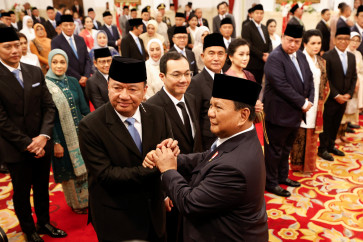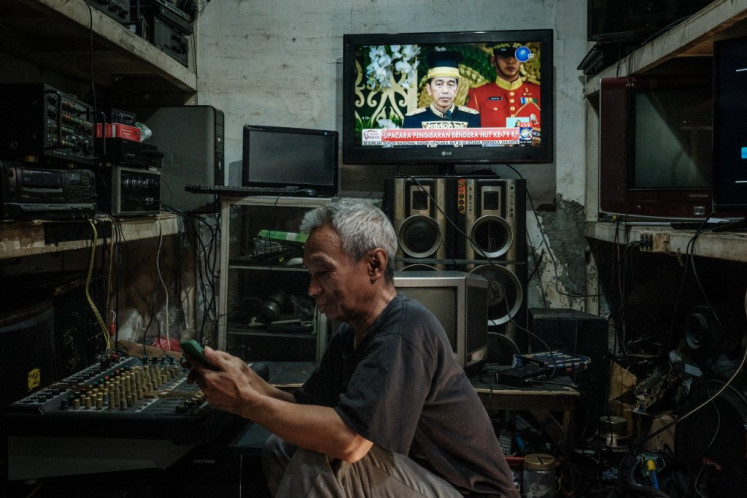RI women deemed most assertive in SEA
Indonesian women professionals have outdone their Southeast Asian peers in proactively demanding pay raises and promotions, a move that has borne highly favorable results to their careers, a recent study on women and the workplace reveals
Change text size
Gift Premium Articles
to Anyone

I
ndonesian women professionals have outdone their Southeast Asian peers in proactively demanding pay raises and promotions, a move that has borne highly favorable results to their careers, a recent study on women and the workplace reveals.
The yearly study, conducted by global consulting firm Accenture, involved 500 professional women across Indonesia, Singapore, Malaysia, Thailand and the Philippines.
Accenture conducted the study, titled “Defining Success Your Way”, to mark the annual International Women’s Day (IWD), which falls every March 8.
Neneng Goenadi, executive director of PT Accenture Indonesia, said the objective of the study this year was comprehending the way women “defined success in their lives and careers”.
“It’s more than just balancing, you need to integrate your work and life to attain satisfaction,” she told The Jakarta Post in a limited report result release on Thursday.
She added that a striking difference this year was that women were as assertive as their men colleagues in demanding pay rises and promotions.
The study found that 80 percent of the respondents asked for a raise and another 73 percent requested promotion. These percentages have outdone results from other Southeast Asian countries.
Thailand is the first runner up in both categories with 53 percent of respondents having asked for a raise and 43 percent saying they have requested a promotion.
The voicing of career needs by Indonesian women professionals did not fall on deaf ears. Only 5 percent of those who asked for raises ended up empty-handed. The remaining women were rewarded with various forms of raises and incentives.
Meanwhile, 15 percent of respondents requesting a promotion received new and better roles, with another 59 percent given new, sometimes unexpected, roles.
Neneng noted that the assertiveness women exhibited in the workplace benefited companies, especially the human resource team, in gauging employee needs.
She said workplaces had to implement systems that enabled a work-life balance, given the premium professionals placed on it.
As many as 76 percent of respondents said they would turn down jobs offering a poor work-life balance with another 81 percent placing an importance on flexible work schedules. Another 63 percent defined career success through the attainment of work-life balance.
“Facilitating this integration can be done in a myriad of ways, from providing day care facilities in offices to allowing a certain period of time working remotely from the office,” she said.
Neneng added that a new feature in the study this year was the element of technology. A majority of respondents, 90 percent, said that technology had allowed them to keep flexible schedules.
“Another new thing is that a majority of women — 58 percent — admitted that they were workaholics,” she noted.









